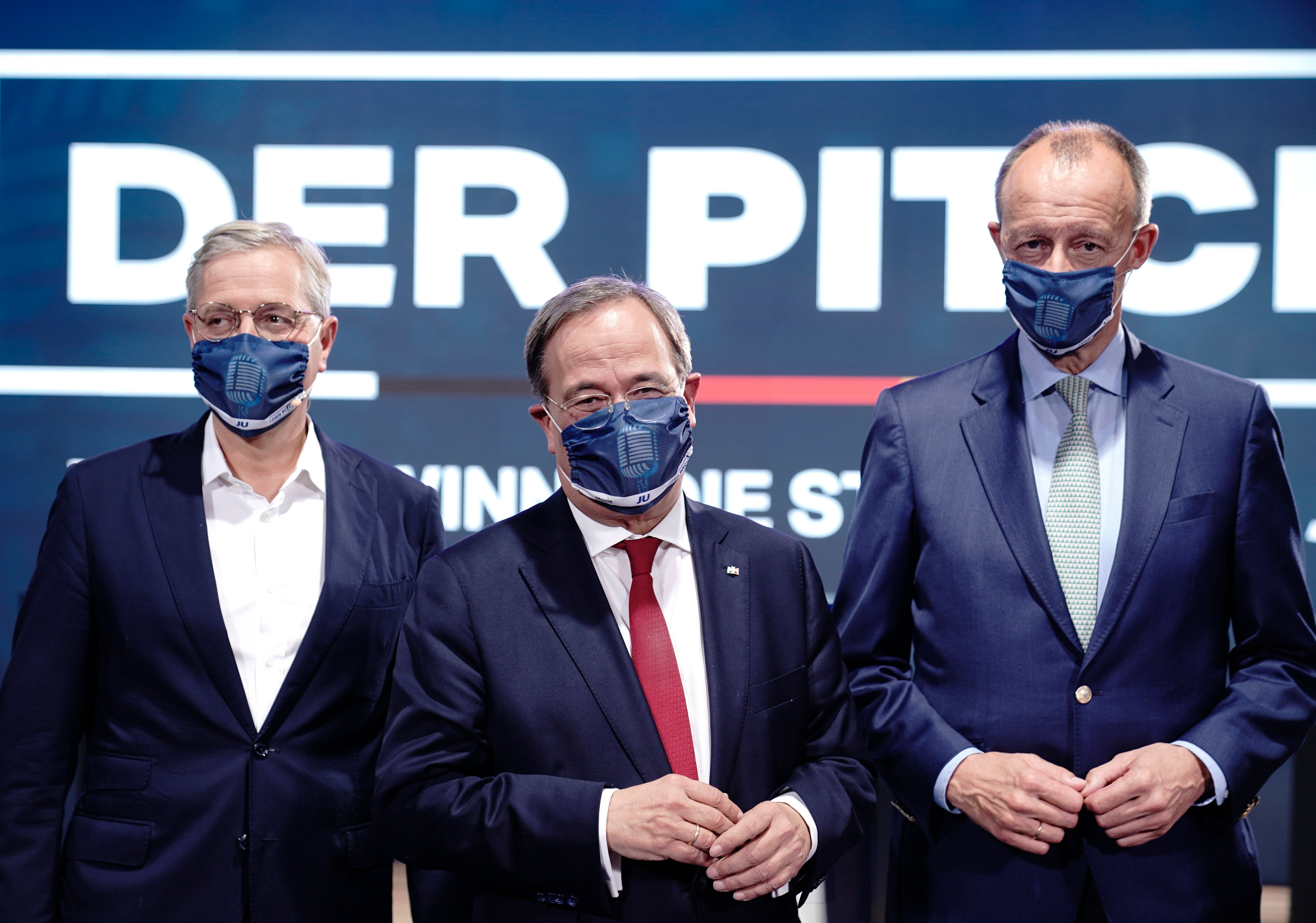Contenders to lead Merkel's party seek January decision
An official with German Chancellor Angela Merkel’s party says the three main candidates to become the Christian Democratic Union's next leader have agreed the decision should be made in mid-January

Your support helps us to tell the story
From reproductive rights to climate change to Big Tech, The Independent is on the ground when the story is developing. Whether it's investigating the financials of Elon Musk's pro-Trump PAC or producing our latest documentary, 'The A Word', which shines a light on the American women fighting for reproductive rights, we know how important it is to parse out the facts from the messaging.
At such a critical moment in US history, we need reporters on the ground. Your donation allows us to keep sending journalists to speak to both sides of the story.
The Independent is trusted by Americans across the entire political spectrum. And unlike many other quality news outlets, we choose not to lock Americans out of our reporting and analysis with paywalls. We believe quality journalism should be available to everyone, paid for by those who can afford it.
Your support makes all the difference.The three main candidates to become the new head of German Chancellor Angela Merkel s party have agreed that the decision should be made in mid-January, a party official said Saturday as leading contenders scrambled to end an increasingly bitter dispute.
The center-right Christian Democratic Union has been in leadership limbo since current chairwoman Annegret Kramp-Karrenbauer who succeeded Merkel in 2018, announced in February that she wouldn't run for chancellor next year and would relinquish her party role.
A special April convention to choose a successor had to be scrapped because of the coronavirus pandemic. The decision was put off until a regular party convention scheduled for Dec. 4, which the party leadership in turn scrapped Monday because virus infections have risen sharply again and Germany's states have imposed new restrictions.
The cancelation brought into the open rifts between the contenders for the CDU leadership. Merkel, 66, has vowed not to seek a fifth term as chancellor, and the next party chair would be in position to run in the election to succeed her, although that isn't automatic. The party currently has a strong lead in polls.
The main candidates to become the leader of the Christian Democrats are Friedrich Merz 64, a conservative former leader of the party's parliamentary group who spent years away from front-line politics; Armin Laschet, 59, the more liberal governor of North Rhine-Westphalia state; and Norbert Roettgen, 55, who chairs parliament’s foreign affairs committee.
Laschet favored delaying the December convention. Merz, a one-time rival of Merkel's who polls suggest is a favorite among the party's grassroots, pressed for a vote to go ahead and charged that “parts of the party establishment” were trying to prevent him from becoming leader. He alleged that Laschet had signaled he needed “more time to improve his performance.”
The open disagreement was an unusual spectacle for the traditionally disciplined party, and it alarmed many prominent members. In comments to the weekly news magazine Der Spiegel on Saturday, Kramp-Karrenbauer called on the contenders not to conduct “discussions that damage the CDU as a whole."
On Saturday evening, CDU general secretary Paul Ziemiak tweeted that the three candidates agreed to seek a party convention in mid-January to decide the issue — held in person if possible, and if not, with an online vote backed by a written ballot. Details will be decided in mid-December.
Ziemiak welcomed what he called a “strong sign of unity.”